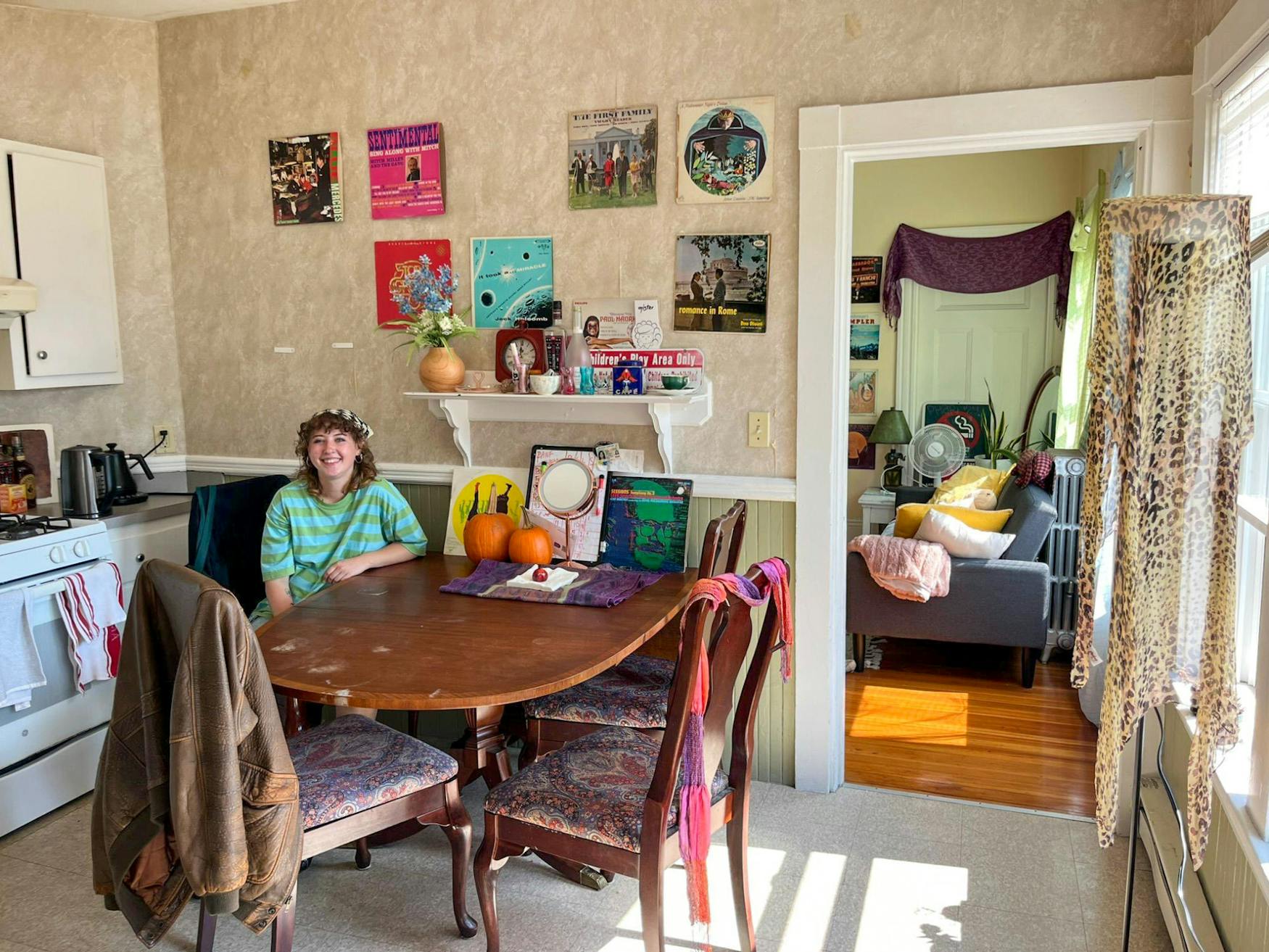Seniors flee off campus for their final college housing
Amidst high campus boarding costs and low chances at the housing lottery, many seniors have placed more trust in Waltham landlords than the Department of Community Living.
For many undergraduates, the last few years at Brandeis have been anything but stable – over admittance has created a seemingly perpetual housing crisis, with student anxieties only exacerbated by massive budget cuts and continued silence from administration. With each passing year, it feels less and less desirable to participate in the Brandeis spiritual ecosystem.
This is especially true for seniors, for whom living off campus was already well within bounds – leaving felt nothing short of necessary. “If you live on campus,” said Gonny Nir ’25 in a Sept. 14 interview with The Justice, “there will be no sanity. There will be insanity.”
Living in Waltham has presented a completely different way of life for many Brandeis upperclassmen, some of whom are fed up with the insular nature of the campus and its social atmosphere. Nir’s housemate Molly Brown ’25 told The Justice on Sept. 14, “All of the dorms have very specific memories attached to them. And it’s nice to be in a space that’s new. It’s such a small campus that it all has a lot associated with it, and it’s good to be able to get out of that.” With a total 3,687 enrolled undergraduate students this year, Brandeis is half the size of the average American college — 6,354 students — according to US News. After three years, one has to throw up their hands.
Not only does the Brandeis campus prove emotionally exhausting for certain seniors, but the cost of living ceases to make sense after a certain time. Edgar Garcia ’25 lives on campus in suite-style housing with friends, and though he appreciates access to the dining hall, being required to pay for it strips the buffet of some of its luster. Nir, on the other hand, prefers her autonomous kitchen, instead of the ‘panopticon-esque’ campus dining system that “controls what I eat and when.”
Garcia is returning to living on campus after subletting in Waltham during the summer, and continued in a Sept. 13 interview with The Justice, “when you’re living on campus, it’s a big bubble – Brandeis is not representative of the rest of Waltham almost at all… [Living in Waltham] really prepares you for the world in different ways and gets you ingrained in the outer society.”
Some seniors ask, in their quest to escape Brandeis, why stop at Waltham? Kiah Holmstrom ’25 took the liberty of moving all the way to Jamaica Plain for her senior year, rooming with a recent Brandeis alumnus. “Was I forced to live in the city? Absolutely not,” she told The Justice on Sept. 14. “But if I’m paying the amount that I pay in rent, I’d rather be in Boston.” Because so many Waltham landlords have relationships with students, and houses are passed from friends to friends, South Street and Prospect Street still present a fairly saturated Brandeisian environment. But Holmstrom lives a different life. “I have a much clearer work-life balance. The commute is a con, but all things considered, it’s really not that bad.”
Additionally, besides students, Waltham has a specific demographic. “Like, if I was an adult that had a family and needed a suburb to live in, Waltham would be a great place to live. But, as a college student, it’s kind of an insular community that takes you to Moody Street and back,” Holmstrom said. If Brandeis won‘t prioritize housing, she reasons, it should at least create more opportunities for students to traverse the areas surrounding campus. “If you’re bragging about how close we are to the city, I feel like you should at least be utilizing more services to bring kids to said city. But yeah, I’m not making those decisions,” Holmstrom said. “The massive con is that we over admit students and can’t figure out that housing is a priority, and instead choose to finance an engineering school.”
And yet, for some seniors, campus works just fine. Garcia’s roommates called convenience the biggest draw, as well as the daily buffet, in their group interview with The Justice. “You’re a lot closer to everything, easier to get to classes. You’re on campus and stuff that’s going on, you can be more a part of the community,” said Nathan Donner ’25. Interestingly, being a part of the community is the exact thing pushing other seniors away from campus.
The small size of the campus does present a double-edged sword – extreme convenience in exchange for extreme exposure. Nir commented on the allure of the former. “Those are valid calculations to make – that living on campus, it’s convenient. And I think that’s the biggest draw to it. And I think that if you’re okay with compromising on convenience, then living off campus makes way more sense.” And on the similarly double-edged community aspect, Nir offered a larger conclusion on life at small colleges.
“I think we all have this idea in our heads that college is a liberating time in our lives. And I think that being in college shows you that it’s not liberating at all because the University is like a parent. And so being off campus gives me the kind of liberation that I think I’ve been seeking for a while out of university life.”



Please note All comments are eligible for publication in The Justice.